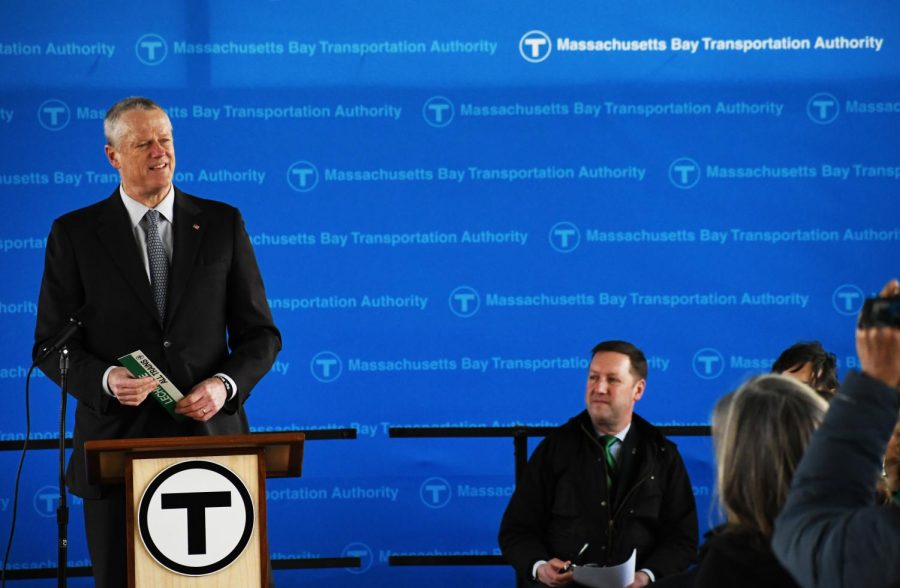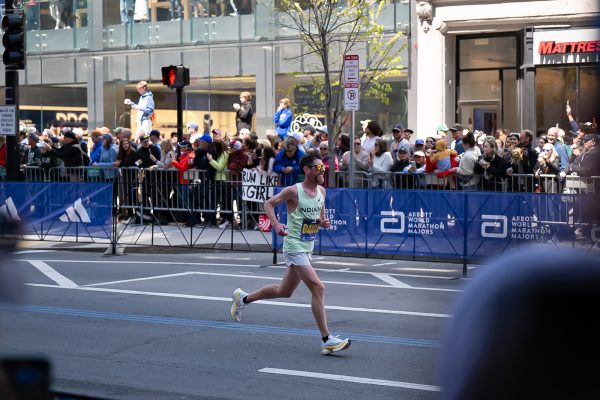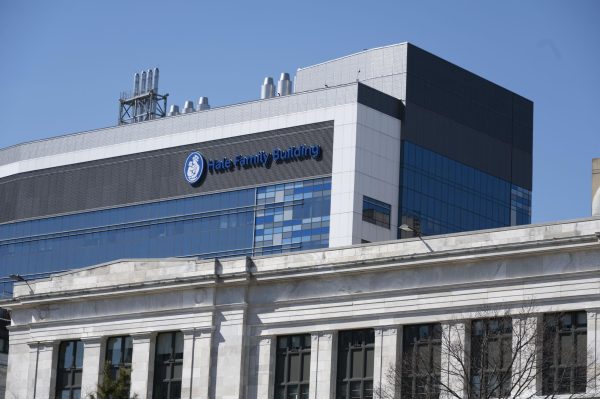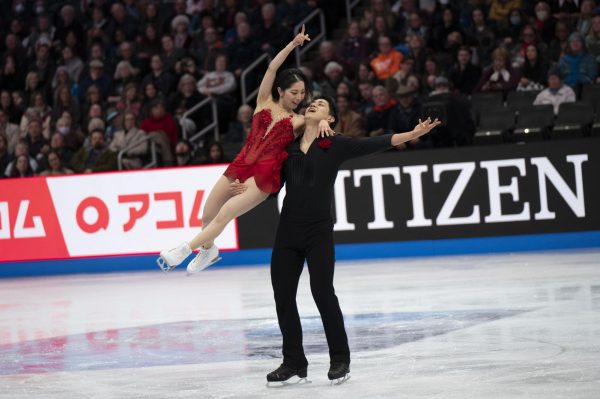Baker selects two district court justice nominees
At the beginning of March Gov. Charlie Baker nominated Justice Robert A. Brennan and Justice Andrew M. D’Angelo as associate justices of the Appeals Court.
These nominations start the multi-step process for them to be confirmed justices on Massachusetts’ intermediate appellate court.
“Justices Brennan and D’Angelo possess decades of experience previously as skilled litigators and now as respected jurists that have prepared them well to serve as Associate Justices of the Appeals Court,” Baker wrote in a statement. “I am pleased to submit these candidates to the Governor’s Council for their advice and consent.”
Although the nominees have over 50 years of law experience combined, some question the viability of the justices, including Ross Jurewitz, founder and managing attorney at Jurewitz Law Group. Jurewitz said the decision Baker made was against time.
“In my opinion, [the nomination] was made for political expediency,” Jurewitz said. “Even though it might be a step in the right direction, only time will tell whether it’s been an effective choice.”
Others, however, note Baker’s decision not to run for re-election as a reason why these picks represent the governor’s true preferences, rather than a grab for approval ratings. Massachusetts political consultant Brian Jencunas said the circumstances provide Baker with “carte blanche to choose judges based on his personal opinions, not political concerns about demographics.”
Though the justices themselves may not represent a clear political bias, some experts still believe that the nominations themselves serve as pawns in the political game.
“There’s always pressure to elect certain types of justice to any given role,” Jurewitz said. “Ultimately it’s always a political decision. [As] much as we might like to think otherwise, the easiest decision is always one that paves the road to political success.”
Others cite the experience of the two nominees and their lack of ties to advocacy groups as rationale that Baker’s decisions were not partisan ones.
“Choosing two district court judges shows Baker’s preference for experience,”Jencunas said. “He’s not choosing somebody from an interest group like the ACLU or from an academic setting, he’s picking people with a proven track record that he approves of.”
Students reflect a more forward-thinking set of views regarding the future of the judicial system.
“I do believe that we need more progressive judges,” said Boston University student Jonny Leonidas, a freshman film and television major, when asked about Baker’s nominees. “I think that over time, laws and regulations exist in a different context. With judges more willing to expand their thinking … I think that fairer decisions can be made and there will be a larger array of open, diverse perspectives.”
Boston-born Brennan graduated from University of Pennsylvania in 1986 with a bachelor’s degree and went on to the Boston University School of Law in 1990.
D’Angelo, also born in Boston, attended the College of the Holy Cross. After graduating, he completed law school at Suffolk University in 1993. He began working at Carney & Associates law firm after graduating and has also spent time teaching at Suffolk University.
Massachusetts has gained a reputation for impartiality in the judicial system, ranging from appellate courts to the Supreme Judicial Court. In 2020, the state earned a Court Balance Score of .57 from Ballotpedia, indicating centered political balance in the state’s collection of justices.
“Unlike the federal appeals courts, Massachusetts state courts are not especially political,” Jencunas said. “The last major controversy was the Goodridge decision in 2003, which made Massachusetts the first state to recognize same-sex marriage that was almost two decades ago.”
In 2003, the Supreme Judicial Court of Massachusetts decided the Goodridge v. Department of Public Health case in favor of the same-sex couples seeking marriage licenses based upon individual liberty and equality measures in the state constitution.
It is unclear whether either nominee carries a distinct political leaning. Baker, a moderate, has been known to select moderate justices in the past for the courts of Massachusetts.
Jurewitz said the nature of the judicial system comes with courts echoing the biases of their respective districts.
“The make-up of any court is supposed to reflect the people that it represents and is usually representative of the politics of any given area,” Jurewitz said. “If you want to know which way a district tilts politically, look at the make-up of the courts and the way they handle local cases.”
Regardless of political biases, decisions made in the appellate courts hold consequences for those in the district they serve and beyond. Jencunas identified district appeals courts as “a crucial part of due process in both civil and criminal cases.”
Jurewitz also said that the primary function of appellate courts, in a nutshell, is to handle appeals filed by those within their jurisdiction. The cases whose conclusions are reviewed in this appellate court range from civil to criminal, meaning that the justices need a significant amount of experience.
According to The Massachusetts Appeals Court website, a large majority of cases are decided at the appellate level. Should they not be definitively decided at this level, some cases will move on to be reviewed by the Supreme Judicial Court of Massachusetts.
Although they have already been nominated by the Baker, the prospective justices still must be approved by the governor’s Judicial Nominating Commission (JNC).
Baker formed the JNC in February 2015 as a mechanism for judicial review. The board is composed of 21 volunteer commissioners, all of whom are members of the Massachusetts law community.
The JNC will vote on whether to invite each nominee for an initial interview. Should each nominee be called on, their respective interviews will take place in two parts. Following these evaluations, the members of the JNC will take time to review the candidate’s application and recommendation letters, according to the JNC’s website.
These nominees are seen by some experts as a positive step towards fairness. “Justice should be blind and everyone should be treated equally by it,” Jurewitz said. “In my opinion, Baker has started to realize that.”








